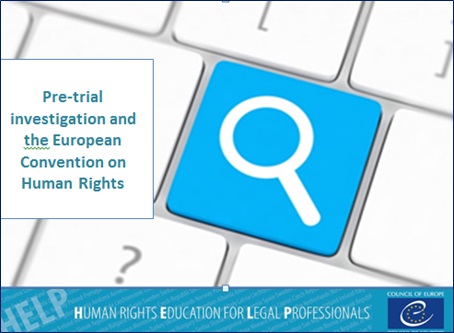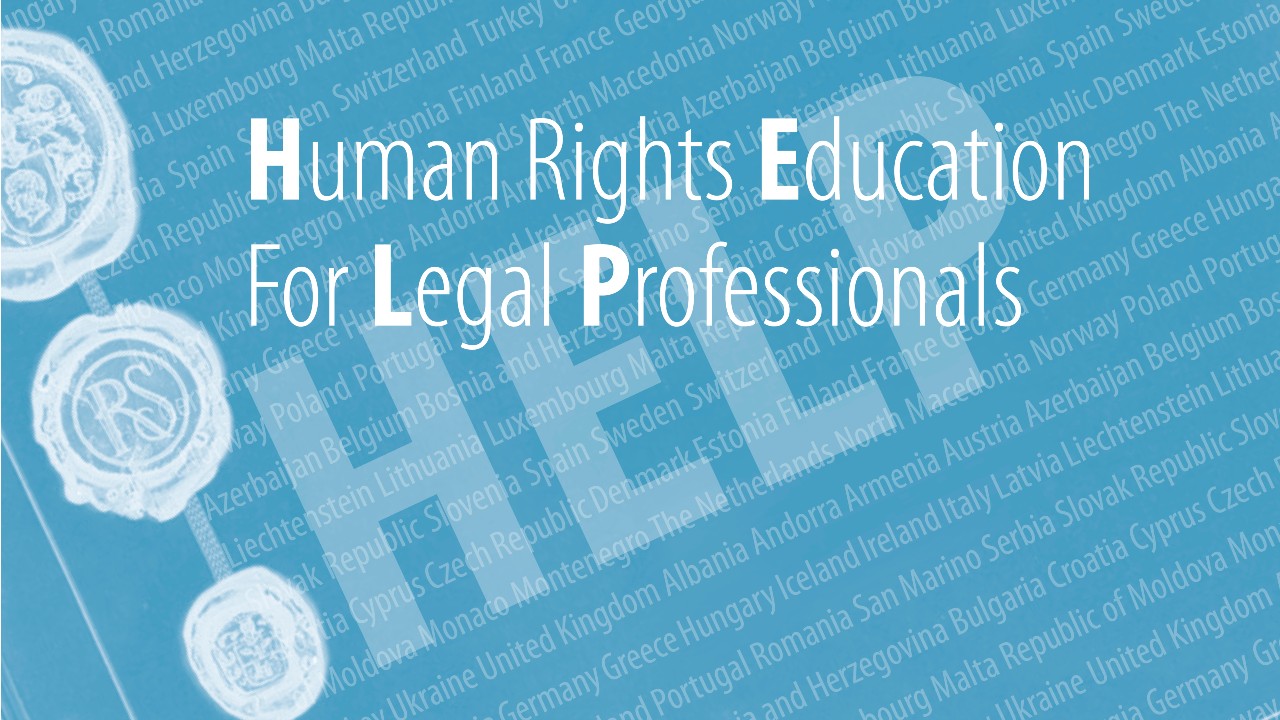The free online course on Pre-trial Investigation and the European Convention on Human Rights (the ECHR) has been developed by the Human Rights Education for Legal Professionals Programme (HELP) of the Council of Europe. It explores where the ECHR and the exigencies of an investigation can conflict and assists professionals who have roles in a pre-trial investigation to understand their obligations under the ECHR.
The course covers human rights standards governing the use of various pre-trial investigation techniques, such as covert investigation and search, as well as standards developed in respect of the deprivation of liberty at the stage of the pre-trial investigation and the treatment during pre-trial detention, the fair trial guarantees relevant for the pre-trial stage of the criminal proceedings, and the requirements to conduct an effective investigation into alleged violations of certain ECHR Articles. It provides an overview of the relevant case law of the European Court of Human Rights developed under Articles 2, 3, 5, 6 and 8 of the ECHR
The course consists of six substantive modules:
- Covert investigation: justification for covert investigation; types of evidence; national security considerations and entrapment and incitement.
- Search: powers of search and the ECHR; rules governing a search; judicial authorisation and searches of the person – intimate searches.
- Pre-trial detention: detention and Article 5 of the ECHR; key concepts of deprivation of liberty and authorised detention.
- Treatment in detention: standards under Articles 2 and 3; conditions of detention and forms of detention.
- Fair trial: Article 6 concepts: criminal charge, independent/impartial tribunal, public hearing, presumption of innocence and equality of arms; and retroactive application of the law.
- Effective investigation: obligation to protect; effective investigation and key principles in human rights law.
These topics are explored in a practical way, by using presentations, interactive screens, knowledge tests and reflective exercises.
Users will be led through the course by a hypothetical scenario which illustrates an on-going investigation.
The course was developed in 2016. It was pilot tested in Moldova in 2017. It is available in English and Romanian.
Click here to take the course now.





